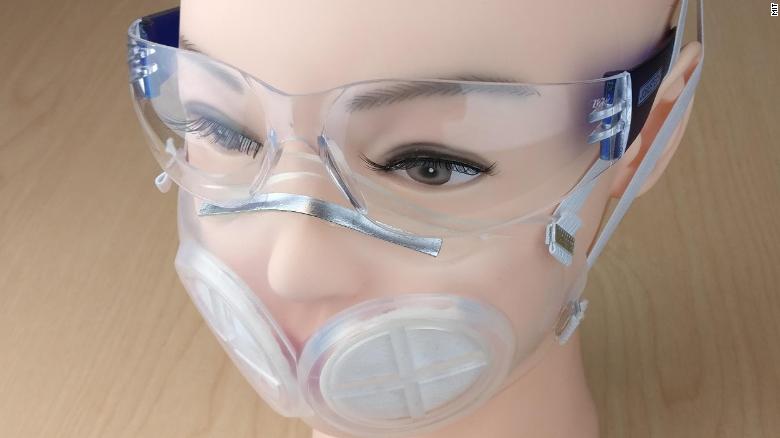As the pandemic rages, nurses and doctors have gone to creative extremes to reuse the same masks, gloves, and scrubs they need to treat contagious coronavirus patients. But if a prototype mask created by researchers proves widely effective, it may be a safer alternative for health care workers and that’s what researchers at MIT are trying to do so, reports CNN.
A Reusable Silicon Mask

Researchers from the Massachusetts Institute of Technology and Brigham and Women’s Hospital in Boston have developed the iMASC, a new silicone mask that can be safely reused without fear of contamination.
Researchers still need to analyze how effectively it catches viral particles, but it’s a promising step toward addressing the critical health care supply shortages.
The iMASC offers a level of protection comparable to N95 respirator masks, its creators say. That’s partially because it uses an N95 filter without all the additional material of N95 masks that catches particles.
How did they do it?
In a study about the iMASC published in the British Medical Journal Open, researchers said shortages of personal protective equipment, or PPE, in hospitals created a “critical need” for reusable safety gear.
So they tried their hand at a N95-style mask.
- They 3D printed the material and tested its use among nurses and physicians, who scored the mask for breathability, fit and ease of filter replacement.
- The masks are based on the shape of a typical N95 mask, too, but they’re made with a silicone rubber that can be sterilized after each use.
- The dual filters that cover the mouth can be replaced after each use, too, the researchers said.
Researchers asked the health care workers, all from Brigham and Women’s Hospital, how the mask stacked up to the tried-and-true N95 mask, and most of them said they either had no preference or preferred the new mask, the researchers said in a release.
Doctors Using Contaminated PPE
N95 masks are considered the most effective face covering and can catch up to 95% of particles. But they’re not made to be sterilized and reused.
But health care workers have had to reuse them anyway due to shortages of the masks and other PPE, like scrubs and gloves. Physicians have had to reuse potentially contaminated gear, which could expose them or their patients to coronavirus. It’s the alternative to not using protection at all, even if reusing PPE poses some risk.
Mask Decontamination Research
The MIT researchers said they knew they needed to create a more versatile process — or product.
- It’s a risk researchers don’t want health care workers to take. Peter Tsai, the man who invented the N95 mask’s filtering fabric, has come out of retirement to test sterilization methods.
- A group of Duke University researchers developed their own method of decontamination in March using hydrogen peroxide.
Restricting To Scale Worthy Methods
“One of the key things we recognized early on was that in order to help meet the demand, we needed to really restrict ourselves to methods that could scale,” said Dr. Giovanni Traverso, an assistant professor of mechanical engineering at MIT and a gastroenterologist at Brigham and Women’s Hospital.
The researchers used several different sterilization methods on iMASC, including running them through an autoclave (steam sterilizer), putting them in an oven, and soaking them in both bleach and isopropyl alcohol.
The silicone material was undamaged after each test.
The MIT team is working on a new version of the mask, which they’ll test to see if it can efficiently filter viral particles.
In the meantime, hospital workers — and people who work at essential businesses and schools that plan to reopen — are urging local, state and federal leaders to provide more PPE to protect their health.
Did you subscribe to our daily newsletter?
It’s Free! Click here to Subscribe!
Source: CNN


















![[Watch] How a Ship Engine Works?](https://mfame.guru/wp-content/uploads/2023/11/mfame-tanker-100x70.jpg)
